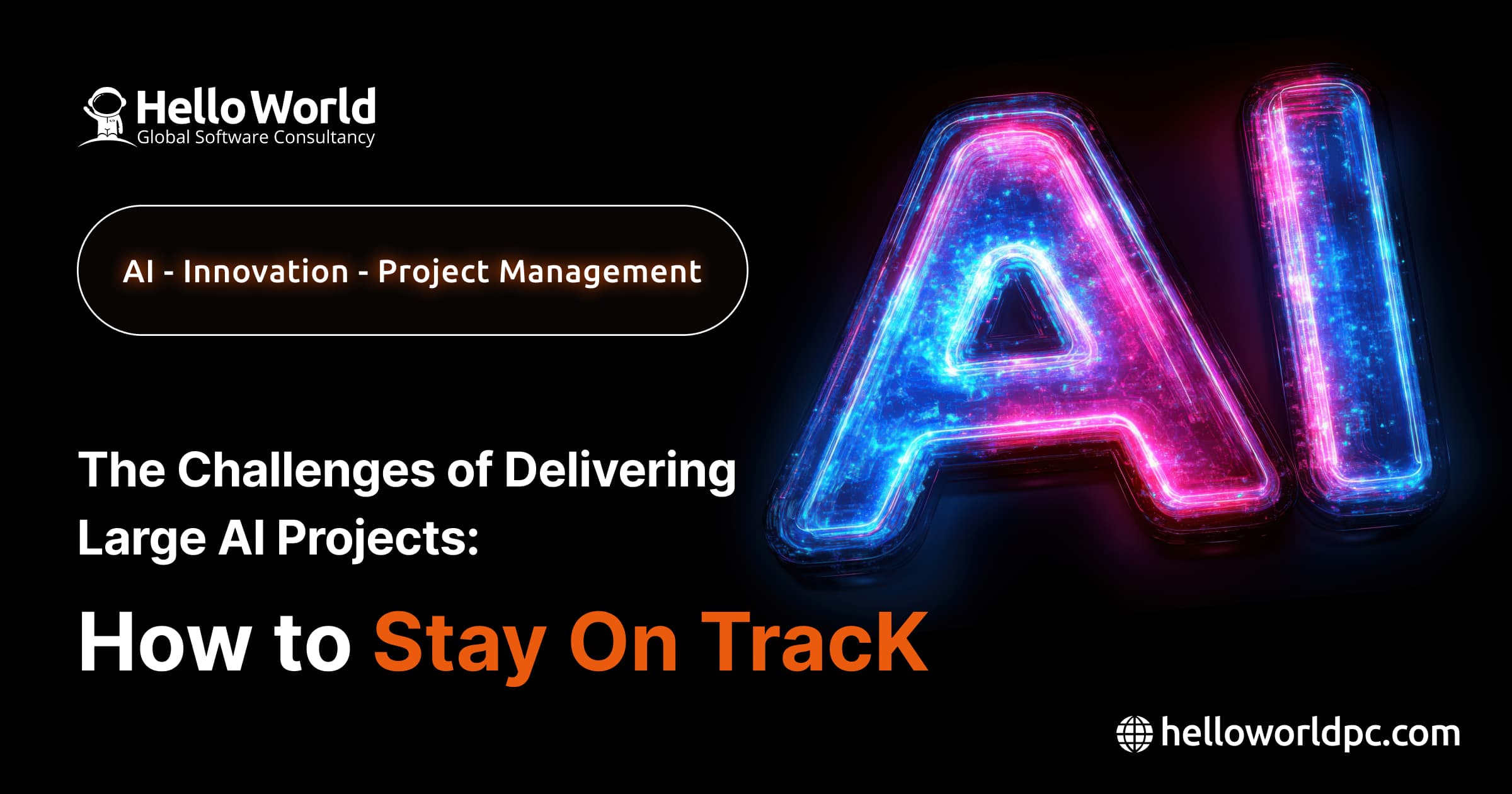Delivering a big project in AI can be complex and challenging due its unique nature. The rapid pace of AI innovation, high stakeholder expectations, and the complexity of scope management often bring multiple layers of difficulty.
In addition to the standard phases of a typical tech project, AI delivery requires several additional, intricate steps. These include extensive data collection and processing, model training, fine-tuning, and iterative testing.
Each of these stages demands significant time, computational resources, and expertise to ensure the AI performs optimally. These complexities make AI projects more resource-intensive and time-consuming compared to traditional technology implementations.
Here, we'll explore some common pain points when managing AI RFPs and how teams can navigate these challenges effectively to ensure project success.
1. Establishing a Clear Project Management Timeline
A solid project management timeline with well-defined phases and deliverables is critical to project success. This structure ensures that each team member knows exactly what they need to do and when to do it.
Questions like "When are we going to train the AI model and the ASR (Automatic Speech Recognition)?" or "What data do we need to collect and how long will it take us till we are at a position to initiate trainings?" are very important so there is a solid plan in place even for the AI components of our infrastructure.
Presenting these phases during the kick-off meeting helps lay a strong foundation and ensures all stakeholders are aligned, minimizing potential confusion.
2. Maintaining Clear Communication Channels
Account managers and delivery teams must be aligned at all times. Keeping everyone updated on the project's progress, as well as critical decisions made during meetings, ensures that stakeholders remain engaged and clearly understand the next steps.
3. Importance of Log Keeping and Immediate Communication
Documenting logs of all project communications and decisions helps avoid misunderstandings and keeps the entire team on the same page. Prompt communication is crucial in resolving issues quickly and in managing team dynamics effectively, especially when AI projects are full of technical intricacies.
4. Understanding the RFP and Managing Out-of-Scope Tasks
The project team must have a solid grasp of the RFP and its scope. This knowledge helps avoid "scope creep"—those out-of-scope tasks that can bog down resources and extend timelines.
Predicting such occasions is essential, as is preparing the ground for structured Change Requests. This approach prevents disruption to the project and sets up a structured pathway for addressing out-of-scope tasks without jeopardizing the client relationship.
5. Allocating Time for Additional Tasks
Sometimes, small tasks outside of the defined scope emerge. While these may not be contractually necessary, accommodating them can improve the quality of the delivery and strengthen client relationships. Anticipating and budgeting time for such tasks ensures smoother project delivery.
6. Close Coordination with the Head of Delivery
A direct and fast communication line with the Project Manager and the Head of Delivery is essential. Timely responses to questions and concerns show that the team is in control, fostering trust among all stakeholders. Maintaining clear, transparent communication can prevent project delays and uncertainties.
7. Problem Management and Confidence in the Product
In AI projects, technical challenges will inevitably arise. The delivery team must maintain confidence in the product and demonstrate calmness when problems occur.
When the team handles issues with confidence, it creates an environment of patience and collaboration, even when things go wrong.
8. Pushing Through the Final Stages
The last phase of the project, often in the final few weeks, requires immense focus. The team's effort typically intensifies at this stage, doubling work to meet critical deadlines. Keeping energy high and ensuring the team is well-prepared for this final sprint is crucial for successful delivery.
9. Communicating Next Steps
During a project, we need to act proactive by informing stakeholders about upcoming steps so that everyone has adequate time to prepare.
Accurately capturing these needs and communicating them quickly ensures that all parties are aligned on future enhancements and that the whole team is moving smoothly with great velocity.
10. Flexibility and Fast Responses to Technical Issues
The fast-paced nature of AI projects means that technical steps — like data collection, AI models training, API integrations, and model deployment — must be handled with agility.
Swiftly addressing technical concerns, coupled with regular progress updates, helps build trust and maintain the quality of deliverables.
So, to sum it up:
- Establish a clear project management timeline with defined phases and deliverables.
- Keep account managers informed to ensure aligned expectations.
- Document all communications to avoid misinterpretation.
- Understand the RFP scope deeply to manage out-of-scope requests and predict Change Requests.
- Allocate time for unexpected tasks to build better client relations.
- Maintain close communication with the Head of Delivery.
- Handle problems confidently to maintain stakeholder trust.
- Intensify effort in the final phase to ensure successful delivery.
- Communicate future work.
- Be flexible and resolve technical issues swiftly.
These steps can help streamline the delivery of large AI projects, ensuring that teams and stakeholders are aligned throughout the journey.

